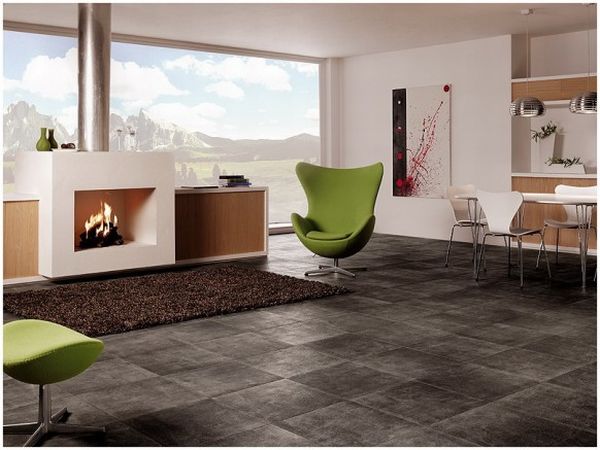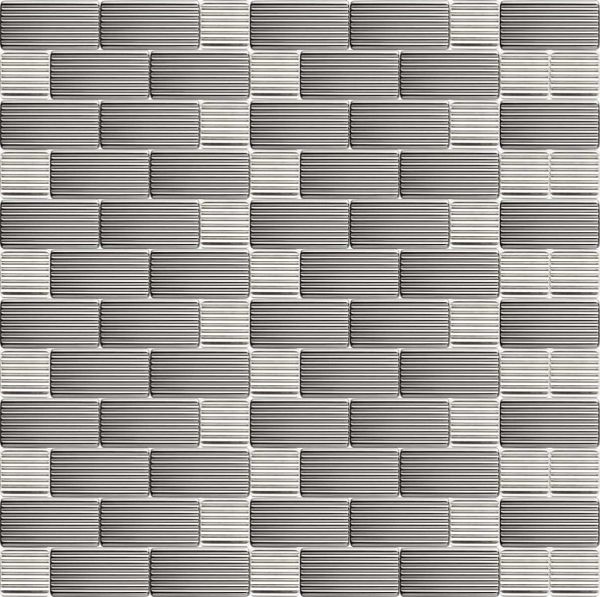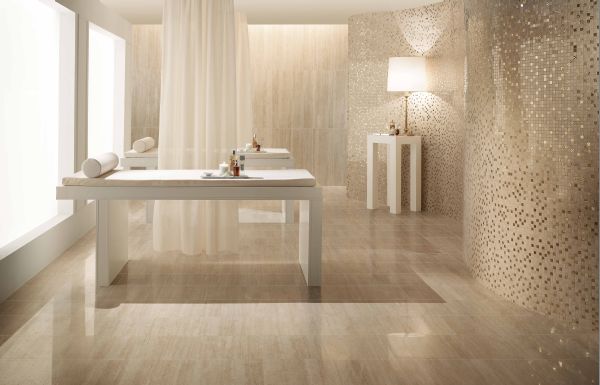Ceramic tiles are traditional flooring material that have been used for centuries in private homes, institutional buildings and religious structures. The large range of ceramic tiles of different shapes, thickness and textures might confuse buyers searching for the appropriate flooring tile for their homes. The following information might help you to select the right flooring material.

Ceramic tiles are usually available as glazed or unglazed tiles. Most ceramic tiles come with a glazed finish. They are available with either a shiny or a matte finish. The glaze finish of the tiles are attained either by dipping the ceramic tiles in transparent lead glazes or the glazes are brushed on the surface of the tiles. The glaze is made by blending ground white lead, China clays, flint and metallic oxides. The tile owes its colors to the metallic oxides such as manganese (purple), cobalt (blue), copper (green), iron (red and brown), lead and antimony (yellow) and tin oxide (opaque glaze) present in the glaze mixture. The highly glossy tiles become slippery when wet, which makes them a risky choice as a flooring material. The dyes and pigments used for painting the hand-painted glazed tiles cannot penetrate into the deeper layers of the tile. If the tile is accidentally chipped, the inner color of the tile will be exposed, thereby ruining the appearance of the floor.
Quarry tiles

Quarry tiles and ceramic mosaic tiles, which are common forms of unglazed tiles. Quarry tiles are the historic flooring material made from quarried stone. These tiles come in earthen shades such as brown, red and gray. The color of the tiles is determined by the color of the clay and the duration of firing and the temperature at which the clay slabs are baked in the kiln. Quarry ceramic tiles are usually available as rectangles, squares and hexagons. These tiles might stain if left uncovered.
Mosaic tiles

The colors and textures of the mosaic tiles depend upon the varied combinations of clay and colors used in manufacturing the tiles. Although mosaic tiles are classified as unglazed ceramic tiles, often these tiles come with a glazed finish. They are highly durable. The moisture resistant property of the mosaic tiles make them a suitable flooring material.
Porcelain tile

The toughest ceramic flooring tiles are usually made of porcelain. The very high temperature at which the tiles are fired helps to increase the durability of the tiles. The low water absorption rate makes them the ideal flooring material. Porcelain tiles are usually recommended for heavy traffic areas.
Ceramic flooring tile sizes
Usually 12, 14 and 18 inches square ceramic tiles are used for covering the floor. Smaller tiles are recommended for small rooms, while larger ones are suitable for expansive spaces. Small 1 square inch mosaic tiles, available in sheets are frequently used. The small mosaic tiles might be installed along with the larger ceramic tiles to create an intricate pattern. Always purchase tiles of the same shade and lot number.


